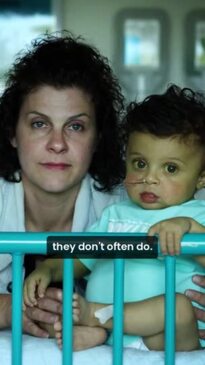The rest of the nation should follow South Australia’s lead and allow residents to register as organ and tissue donors via their driver’s licence, the state’s health minister says.
While most Australian jurisdictions previously permitted residents to register when applying for or renewing their licence, only SA still does.
SA Health Minister Chris Picton said he championed the system in a meeting with his fellow state and territory health ministers late last year, in what was “a welcome hearing”.
His recommendation was last week backed by a parliamentary committee investigating lagging donor rates in Western Australia, who agreed it had “proven successful” in SA and should be reinstated in WA.
“Digital driver’s licences (are) being explored in WA and other jurisdictions,” the report said. “This could provide an opportunity to introduce reform.”
Victoria is also undertaking a parliamentary inquiry aimed at increasing its registered donors – but last year, it heard VicRoads had not discussed restoring organ donation status on licences as part of an upcoming digital licence rollout.
SA has the highest proportion of eligible residents on the Australian Organ Donor Register (AODR), at 73 per cent. It is followed by Tasmania (48 per cent), NSW (41 per cent), WA (37 per cent), Queensland (31 per cent), ACT (27 per cent), Victoria (23 per cent) and NT (16 per cent), DonateLife figures show.
Further, 58 per cent of all 16 and 17 year olds on the AODR are from SA.
All Australians aged 16 and above can – and are encouraged to – register via donatelife.gov.au or the Medicare App. They should then tell their family, as their loved ones will decide whether they actually donate organs and tissue.
Mr Picton said SA’s strong donation rates were due to “a combination of factors, including excellent clinical work and commitment from intensive care staff in public hospitals”.
“But clearly, one of the components of the success has been the high registration rate, and that’s led by the (fact) people in SA have the ability, when they sign up for or renew their driver’s licence, to indicate that they intend to be an organ donor,” he said.
Mr Picton said Organ and Tissue Authority board member Oren Klemich – whose son Jack donated lifesaving organs to four people after he died suddenly at age 18 – had urged him to approach the other health ministers, and he was encouraged by their response.
“They will need to consider whether it’s practical for them to implement and speak with their transport ministries,” Mr Picton said. “But we’re very willing to share how it’s been a success here, how we put it in place and how it could apply in other states.
“Organ donations save so many lives across Australia.”
The WA parliamentary committee report also noted that the fact licence renewal occurred every five years could “give families more confidence that their loved ones’ recorded decision (to support organ donation) is current”.
“Other opportunities for pathways to registration could include lodging tax returns, applying for a WA photo card, interacting with general practitioners and registering to vote,” it said.
Mr Klemich said he and his wife, Gill, knew of their son’s wishes to become a donor because he had ticked the box when applying for his first full licence.
“Jack was filling out the form and he asked Gill ‘what’s an organ donor?’,” he recalled. “She said, ‘if something horrible happened to you, the doctors in hospital can give your organs to people who need them’.
“He just ticked the box. Not many months later, we were asked, ‘he’s registered, but are you happy to donate his organs?’ We said yes.
“The driver’s licence registration system is incredibly simple and it will save lives.”
OTA chief executive Lucinda Barry added: “The evidence it clear that having the driver’s licence system leads to more people being on the register, and eight out of 10 families say ‘yes’ to donation if their loved one is registered.”
Six in 10 Australians want the ability to register via their driver’s licence, a YouGov poll revealed last year.
One organ donor can save up to seven lives and change many more through eye and tissue donation. But only 2 per cent of Australians die in hospital in a way where donation can be considered, and their families must then consent.
In 2023, 1396 Australians received transplants from 513 deceased donors.
Originally published as Push to allow all Australians to register as organ donors via driver’s licences
